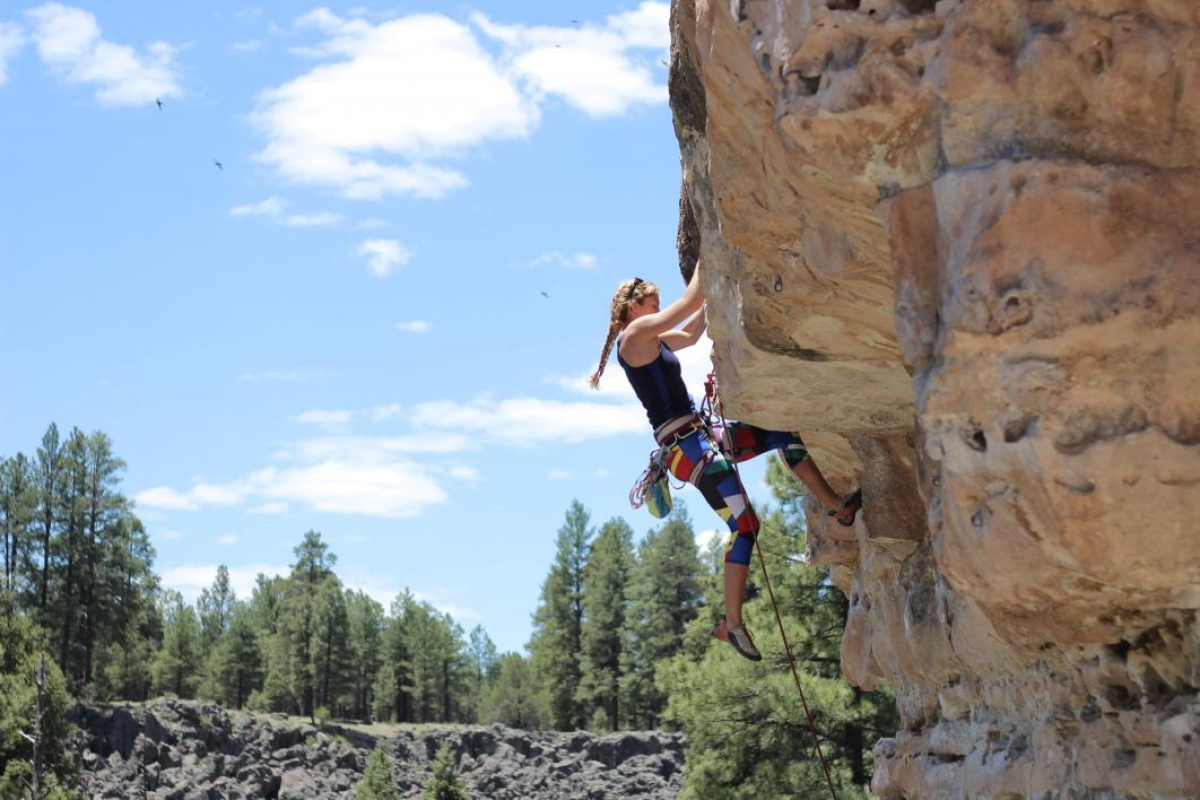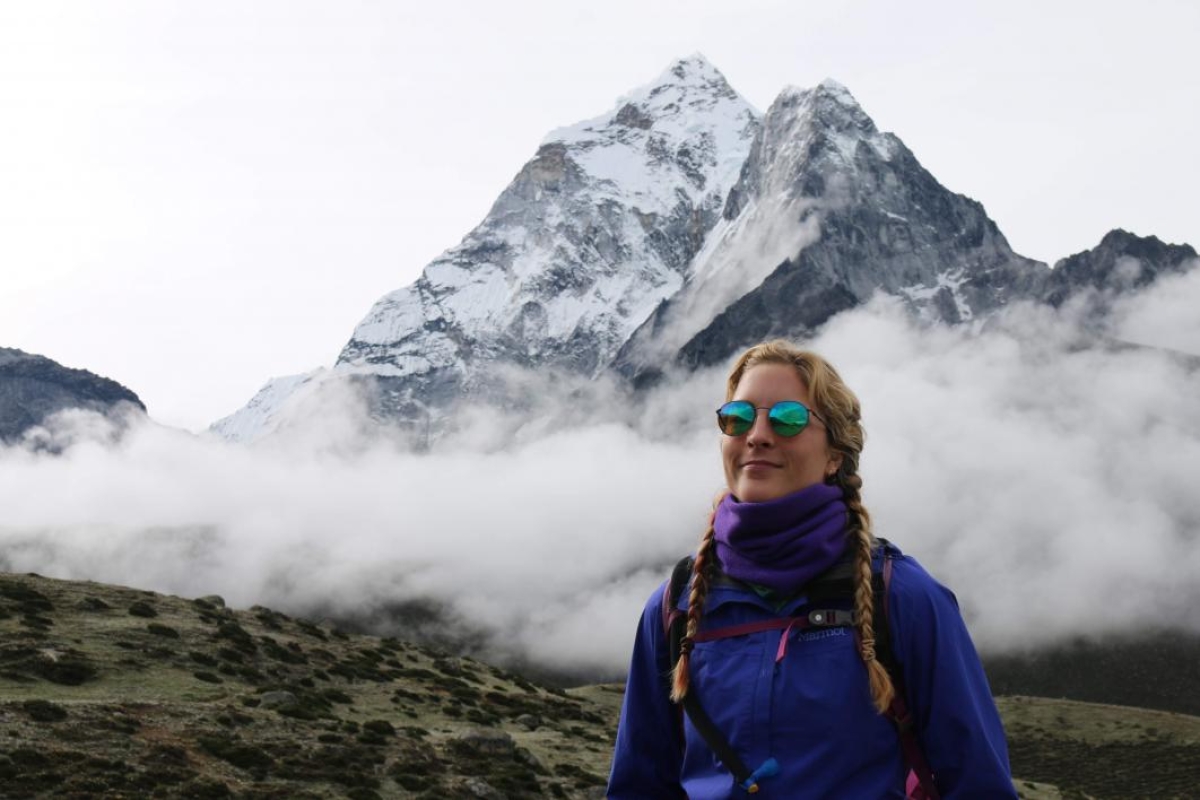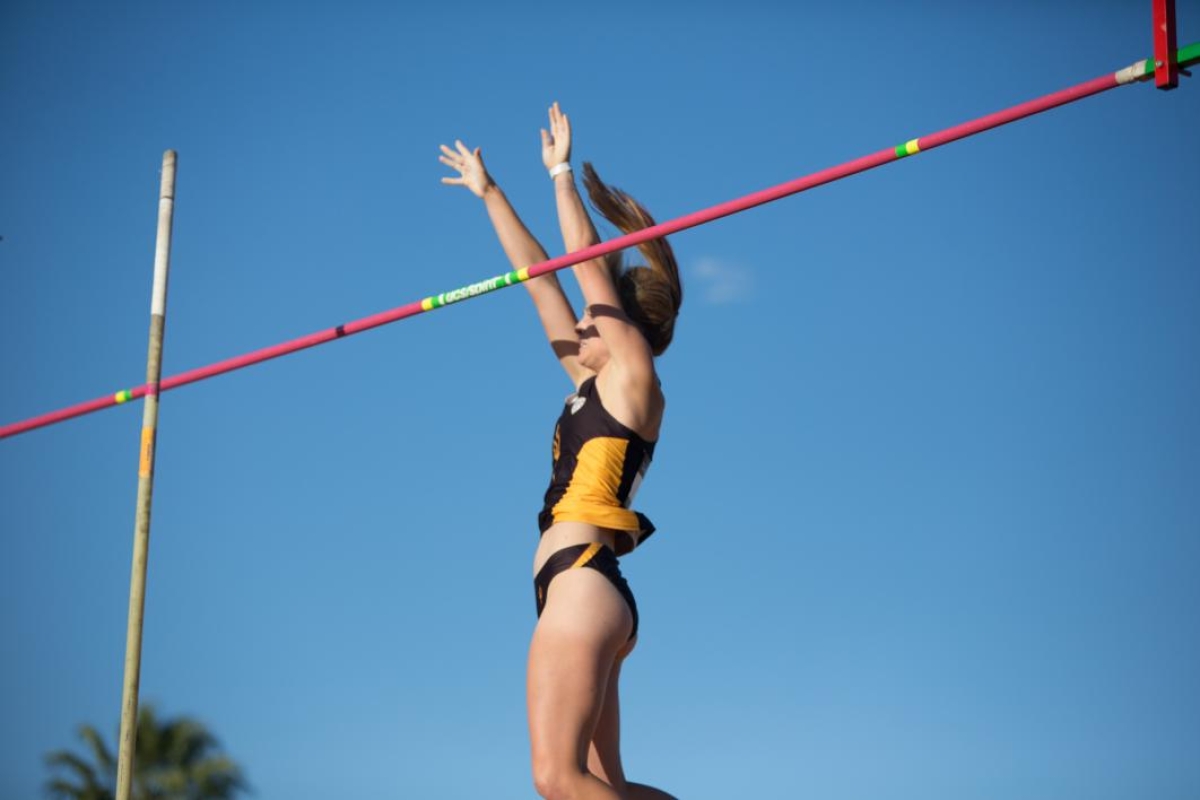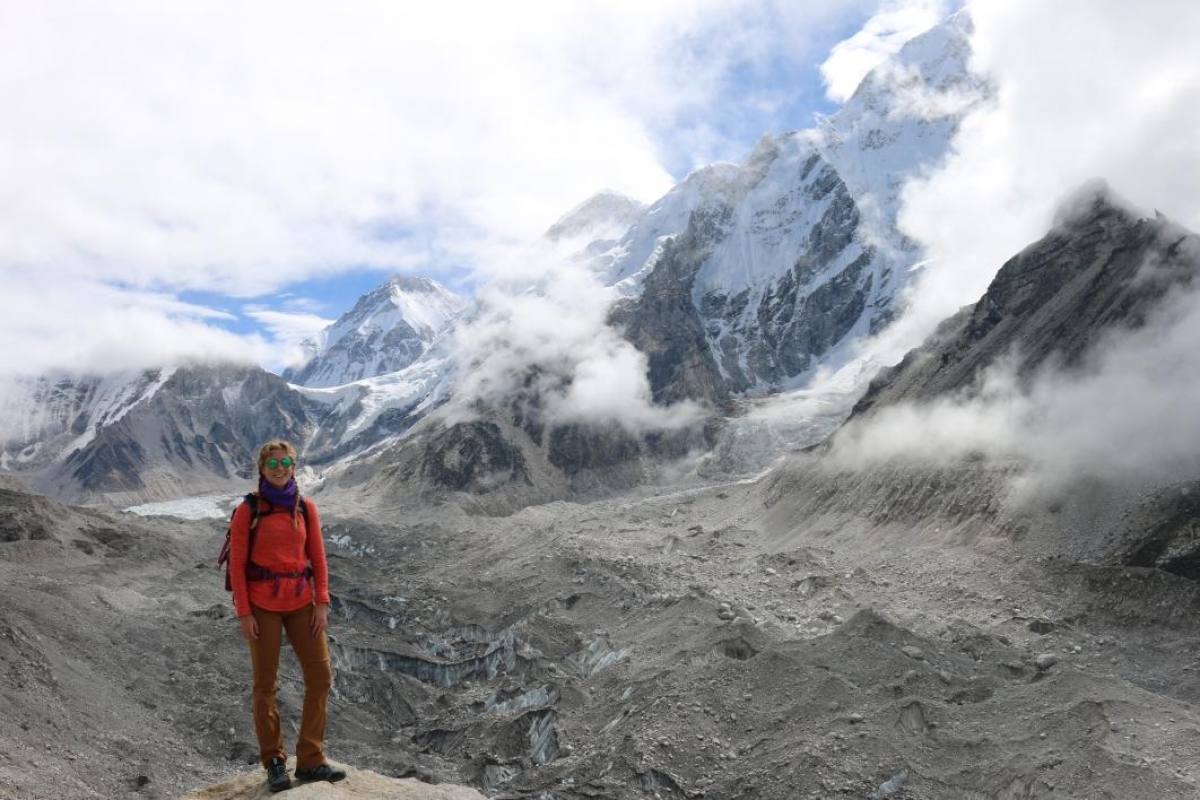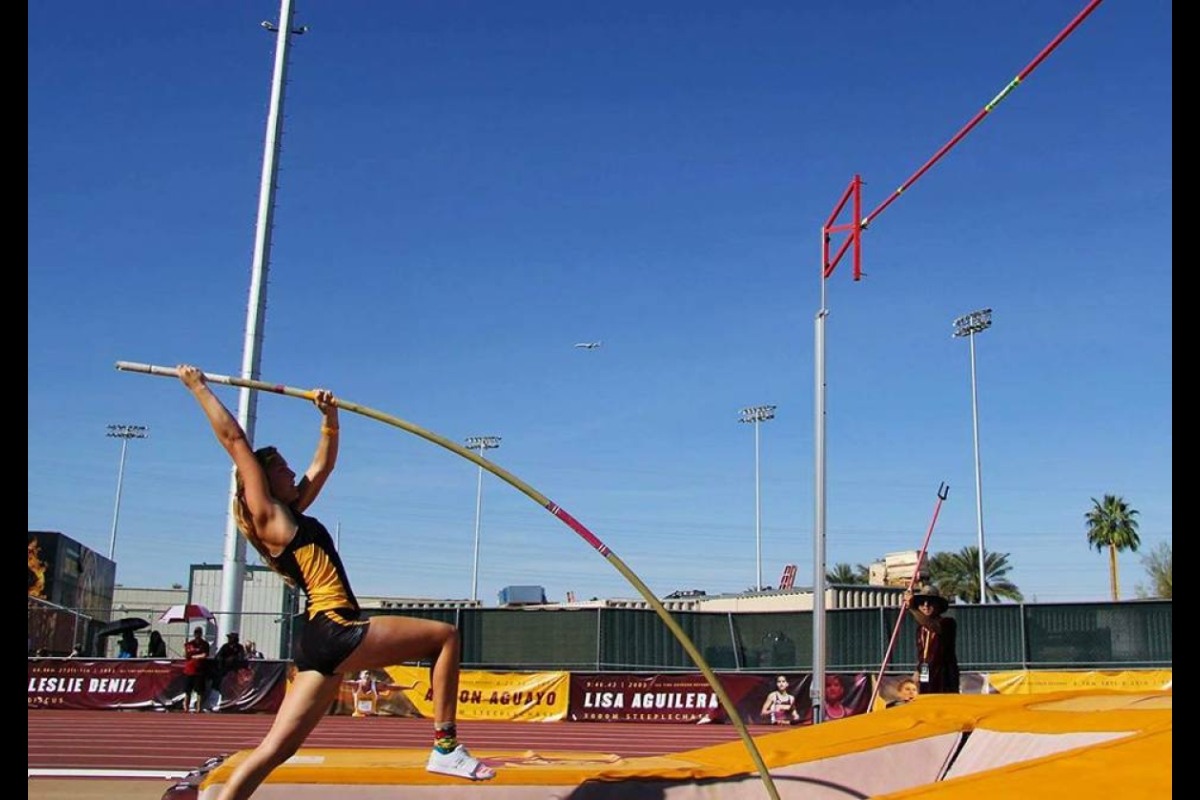School of Molecular Sciences grad fulfills both her passions as a STEM major and athlete

Vanessa Davis
Editor’s note: This is part of a series of profiles for spring 2019 commencement.
Vanessa Davis chose to attend Arizona State University because it fulfilled both of her passions — to pursue a degree as a STEM major and compete at the collegiate level in track and field. Davis received both the presidential scholarship for academics, but also an athletic scholarship for track and field. Davis credits these scholarships with allowing her to become more involved with Arizona communities and travel abroad to expand her global understanding.
Initially, Davis was a biomedical engineering major, but after taking some chemistry classes, became fascinated with the subatomic world and how applicable it is to understanding biological processes; she sought to expand her knowledge on this subject and pursue a degree in chemistry. By applying the technical background in chemistry combined with her passion for medicine, Davis aims to become a surgeon recognized not solely by her reputation in the OR, but also for her compassion outside of it.
Davis took physical chemistry from Scott Sayres, assistant professor at the School of Molecular Sciences and Biodesign Center for Applied Structural Discovery, and credits his enthusiasm for her own motivation to pursue her education and goals within the medical field.
“Vanessa is an extremely bright scientist that possesses natural aptitudes in STEM, research and problem-solving skills, and has a strong work ethic,” Sayres said. “Her combined passions for science, adventure, and for bettering the lives of others will ensure her success in medical school and beyond.”
During her time here at ASU, Davis was part of Barrett, The Honors College, and on the track and field team as a pole vaulter. She competed in Division I Track and Field competitions as part of the Pac-12 Conference. During her summers she has been fortunate to travel overseas to work in foreign healthcare and even got hike to the base of Mt. Everest in the beautiful Himalayas, where she hopes to return to someday and provide healthcare.
Davis will graduate this May with a degree in chemistry. She answered some questions about her time at ASU.
Question: If you received a scholarship, how this impacted your education at ASU?
Answer: I received the presidential scholarship for academics as well as an athletic scholarship for track and field. Attending Barrett, The Honors College gave me unique opportunities to do so, exposing me to diverse perspectives that allowed me to harness my capabilities to not only succeed academically, but to have a positive impact on my community.
Q: What was your “aha” moment, when you realized you wanted to study the field you majored in? (Might be while you were at ASU or earlier.)
A: Believe it or not, chemistry was at first my hardest subject in high school, but all it took for me to find my passion for it was having a teacher who made class interesting.
Q: What’s something you learned while at ASU — in the classroom or otherwise — that surprised you; that changed your perspective?
A: Being involved in collegiate athletics as well as several clubs at ASU, I was exposed to a variety of people from different backgrounds, which allowed me to appreciate diversity of thought. As humans, we all have different strengths and weaknesses, and it is our duty to embrace this diversity. The only constant in our life is change, so once we accept this and open our mind to new ideas, we may learn from one another and innovate, because even the simplest idea can ignite a change in the course of the future.
Q: Why did you choose ASU?
A: I chose ASU because I wanted to continue my athletic endeavors while also pursuing a STEM major to set myself up for a successful career in medicine. I have always been passionate for both athletics and academics, so I found the wide range of elective courses, community involvement and research focus at ASU to best suit my career aspirations. Being able to also advance my athletic career at the collegiate level was a bonus, as I got to compete for ASU in Division I Track and Field competitions as part of the Pac-12 Conference.
Q: Which professor taught you the most important lesson while at ASU?
A: The enthusiasm Scott Sayres showed for physical chemistry and drive he had to really get students involved in class and interested in real-world applications of coursework inspired me to embrace my passion for science and medicine and use this to motivate others. Just as Dr. Sayres made learning quantum mechanics and thermodynamics enjoyable by applying it to our everyday lives, I hope to become a physician that uniquely motivates my patients to overcome life’s obstacles and be passionate for their overall health and well-being.
Q: What’s the best piece of advice you’d give to those still in school?
A: My advice would be to really get to know your classmates and professors because they will not only be great resources, but you will develop wonderful friendships that will make school enjoyable and lay the foundation for success. You still must put in the work, but having supportive friends and faculty makes learning all the more fun and pushes you to be your best. Aside from that, make sure to live a balanced lifestyle — get outside often and enjoy the AZ sunshine!
Q: What was your favorite spot on campus, whether for studying, meeting friends or just thinking about life?
A: For studying with my classmates, Noble Library was the destination of choice. Otherwise you could find me outside soaking up the sunshine in between classes!
Q: What are your plans after graduation?
A: I will be attending medical school, and I hope to eventually pursue a career in orthopedic surgery. It is my goal to become a leader in medicine, applying myself to the best of my abilities so that I may motivate my patients to live out their best life.
Q: If someone gave you $40 million to solve one problem on our planet, what would you tackle?
A: With $40 million, I would work to establish programs that supply medical equipment and facilities to underserved nations. Living and working in rural Nepal, I saw the impact the recent earthquake had on communities and how broken the infrastructure had become. While working at the Bhaktapur Cancer Hospital, most of the medical equipment was donated by a few Australian doctors, including the one all-purpose endoscope for the entire hospital. I hope to one day return to Bhaktapur and serve other rural hospitals, supplying medical resources and education to advance health care globally.
More Science and technology

Breakthrough copper alloy achieves unprecedented high-temperature performance
A team of researchers from Arizona State University, the U.S. Army Research Laboratory, Lehigh University and Louisiana State…

4 ASU researchers named senior members of the National Academy of Inventors
The National Academy of Inventors recently named four Arizona State University researchers as senior members to the prestigious…

Transforming Arizona’s highways for a smoother drive
Imagine you’re driving down a smooth stretch of road. Your tires have firm traction. There are no potholes you need to swerve to…


